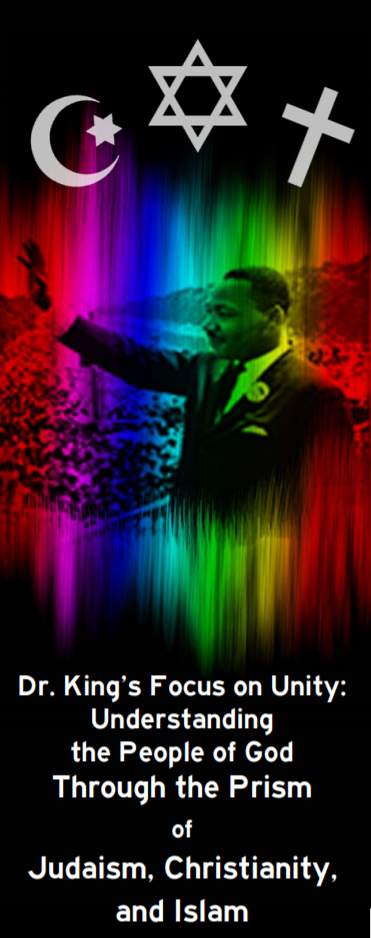Thoughts on MLK, Jr and Judaism (Introductory Comments from, "Dr. King’s Focus on Unity: Understanding the People of God Through the Prism of Judaism, Christianity, and Islam")
Dr. Martin Luther King, Jr.’s vision for a better future remains as compelling as ever. Though I know some of his language—gender exclusivity and choice of words—would differ if composed today rather than in 1967, I’m nevertheless inspired by some of his sentiments from his final book, Where Do We Go from Here?, and I’ll quote from it directly:
“The tendency to ignore the Negro’s contribution to American life and strip him of his personhood is as old as the earliest history books and as contemporary as the morning’s newspaper. To offset this cultural homicide, the Negro must rise up with an affirmation of his own Olympian manhood. Any movement for the Negro’s freedom that overlooks this necessity is only waiting to be buried. As long as the mind is enslaved, the body can never be free. Psychological freedom, a firm sense of self-esteem, is the most powerful weapon against the long night of physical slavery.…With a spirit straining toward true self-esteem, the Negro must boldly throw off the manacles of self-abnegation and say to himself and the world: ‘I am somebody. I am a person. I am a man with dignity and honor. I have a rich and noble history, however painful and exploited that history has been.…’ This self-affirmation is the black man’s need, made compelling, by the white man’s crimes against him. This is positive and necessary power for black people.”
As one inhabiting an ethnic and religious group often disempowered and marginalized, a people still frequently erased in public discussions of persecution, a people who have all too often seen their leaders diminished by an oppressive, intolerant majority, I relate to Dr. King’s words in a serious way. They remind me of a story told by a well-known Jew, someone who has become a household name even while many of his decades-old ideas have been questioned, Sigmund Freud. Speaking of his father, a man whom even as a child Freud judged for failing to fulfill, in King’s words, his own “Olympian manhood,” Freud wrote:
“I may have been ten or twelve years old, when my father began to take me with him on his walks and reveal to me [through discussion] his views upon things in the world we live in. Thus it was, on one such occasion, that he told me a story to show me how much better things were now than they had been in his days. ‘When I was a young man,’ he said, ‘I went for a walk one Saturday in the streets of your birthplace; I was well dressed and had a new fur cap on my head. A Christian came up to me and with a single blow knocked off my cap into the mud and shouted: “Jew! Get off the pavement!”’ ‘And what did you do?’ I asked. ‘I went into the roadway and picked up my cap,’ was his quiet reply. This struck me as unheroic conduct on the part of the big, strong man who was holding [me,] the little boy[,] by the hand.”
No person—on the basis of their race or their religion, their place of birth or their citizenship status, their sex or their gender or their sexual orientation—no person should have their culture made lesser in their eyes, demeaned, on the basis of bigotry, of racism, of intolerance. The Jewish tradition teaches us that darkhei shalom, literally “ways of peace,” are important. This tradition holds that peaceful coexistence with people different than ourselves is of paramount importance. I’m enormously touched to be able to engage in the sort of peaceful dialogue Dr. King so highly cherished this evening. In moments like this, we together are paving the “ways of peace” necessary for mutual empowerment, collective growth, and blessed, harmonious progress.

